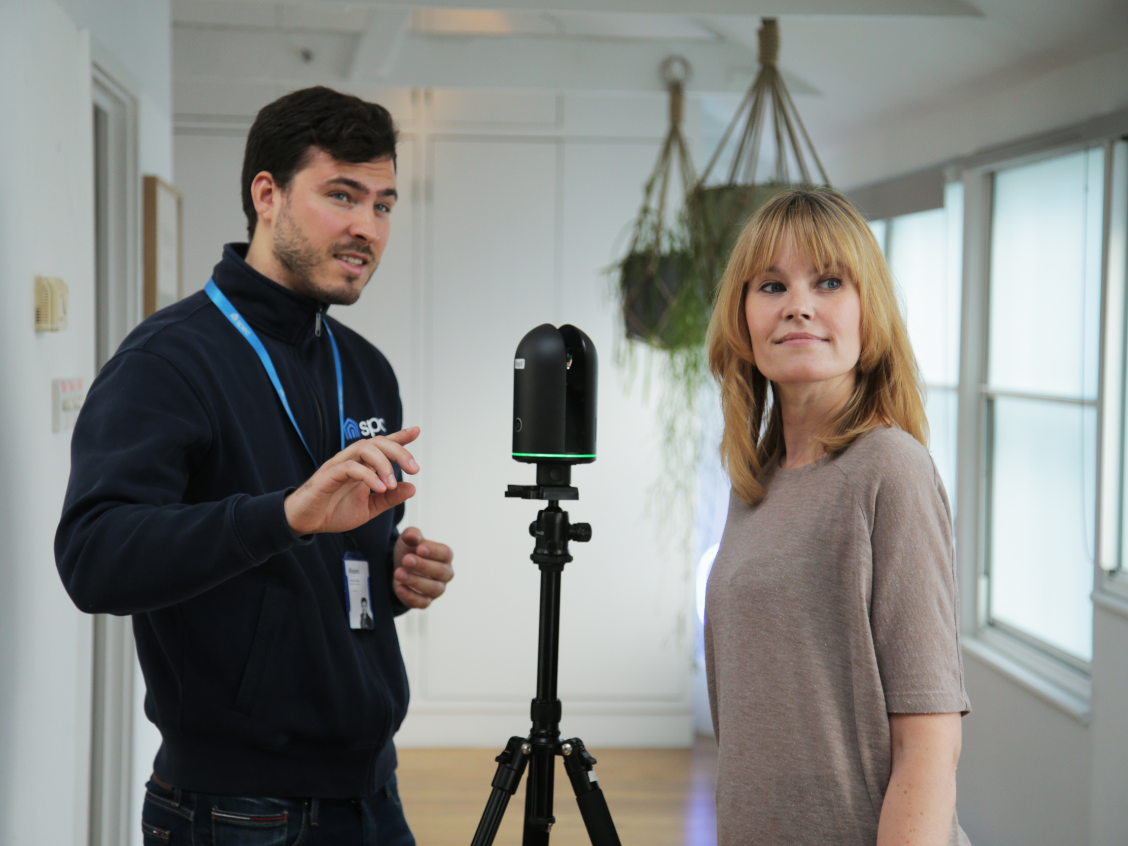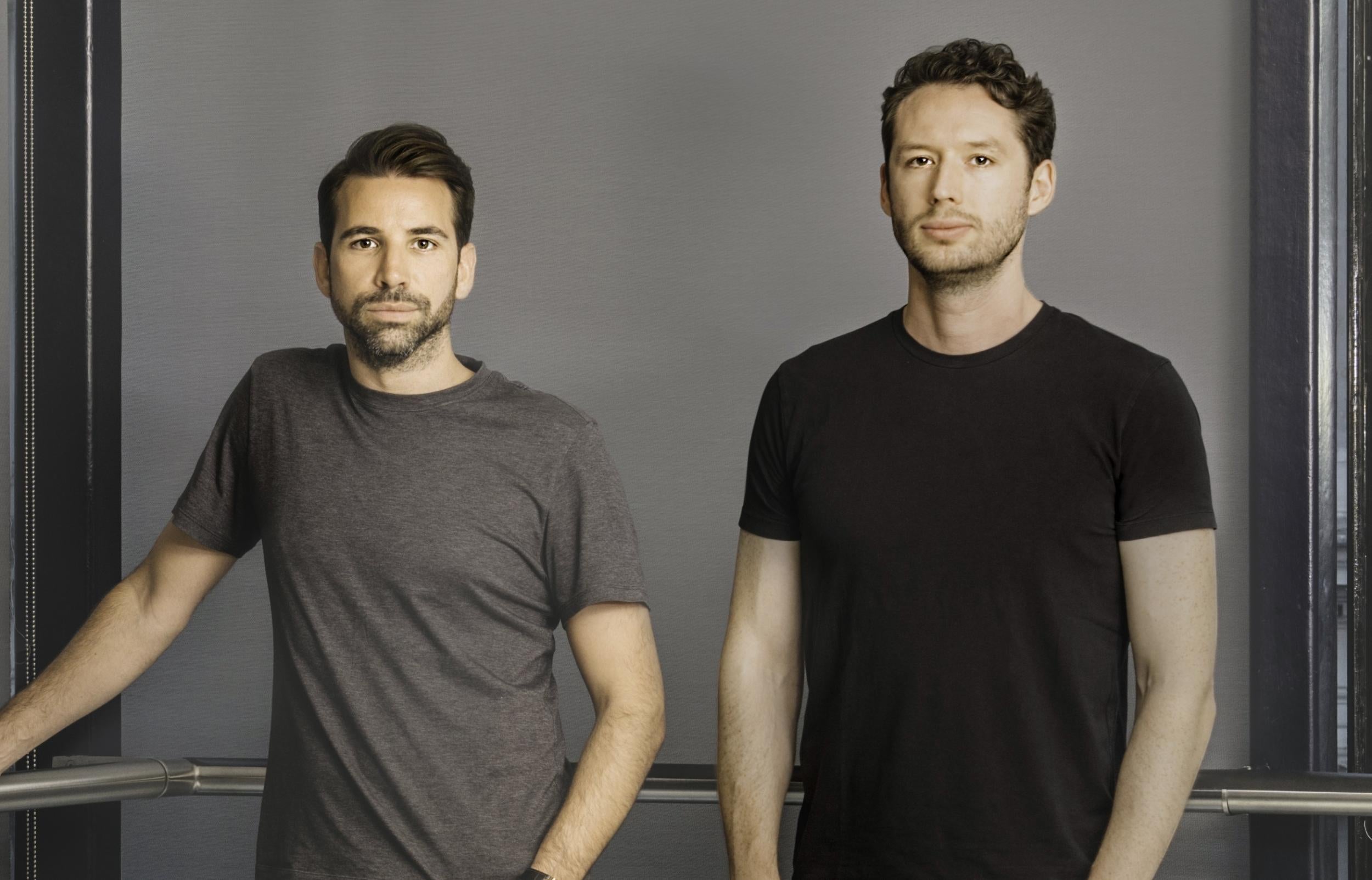How Pupil is using virtual reality to help take the hassle out of house hunting
Co-founder James Marshall is using modern technology to make finding a property a less painful and time-consuming endeavour, writes Andy Martin


The reassuring message from James Marshall is: don’t worry too much if you fail all your GCSEs. He did. He dropped out of school aged 17 before he could fail his A-levels too. “It would be fair to say I was not overly academic,” he says. And now he is CEO of Pupil and doing for the interiors of houses what Google Street View has done for the exteriors. “All floor plans are wrong,” says Marshall. His venture “Spec” aims to fix that.
Two and half years ago Marshall walked into the Royal Institution of Chartered Surveyors headquarters in London and had a meeting with the director of international standards. He said: “We believe everyone has been mis-sold properties because they are being mismeasured. Especially in London.” To which the standards supremo replied, “Yes, we know.”
Marshall, born in 1984 near Ross-on-Wye in Herefordshire, initially went into hospitality after leaving school, then into finance, and acquired a grounding in real estate (losing his shirt on a piece of land in Herefordshire – a “good learning experience”). He met his co-founder Oliver Breach (equipped with A-levels and a degree in religious studies) through friends in the midst of the 2008 financial crisis and they eventually joined forces. But their breakthrough moment occurred in 2014 when they encountered virtual reality for the first time.
You can see 10 properties in 10 minutes anywhere in the world. It’s like you’re teleporting
They were in a hotel room in New York and their friend Dave (David Mullett, now chief design officer and co-founder) turned up with a backpack with lots of wires sticking out of it, a laptop, and a headset. “You have to try this,” he said. When they put the “helmet” on they were suddenly flying through space with satellites and stars whizzing past them. When Marshall took the headset off and came back down to Earth, he turned to Oliver and said, “This tech is awesome. How can we make money out of it?”
With all that paraphernalia, it didn’t seem practical at first sight, but six months later Dave turned up again with just a phone and some goggles (or “head-mounted display”) that came free with the phone. They happened to be skiing in Europe at the time. “Can you capture this chalet,” Marshall asked. “So we can see it remotely?” Which is when they started to glimpse the commercial applications.
They knew the property viewing process was protracted, as well as time-consuming and expensive. There were a lot of gawpers too, with no intention to buy. There are three-and-a-half million residential properties inside the M25. Every year there are 425,000 listings and 220,000 transactions. That’s a lot of house-viewing and loads of potential time-wasting. Marshall and Breach realised that the virtual reality tour was the answer. “You can see 10 properties in 10 minutes anywhere in the world,” says Marshall. “It’s like you’re teleporting.”
But you still want to know the exact size of the one you’re interested in. Marshall points out that, traditionally, when you look up the specifications of a property and check the square footage, you should also look at the small print which will tell you that this number can’t be relied upon and is for “illustrative purposes” and “guidance only” ie it’s wrong.
Pupil has spent one year of pure research and four years of development and £250,000 in grants trying to get the tech right to measure it properly. In a stats-heavy world where we know how many throw-ins there are in the course of a football match and exactly how far every individual player has run, we need to know exactly – not roughly – how big a house is. It shouldn’t be that hard. But it is.

When a property goes up for sale, we all know how it typically works: a photographer goes in with a nice wide-angle lens and takes photos that will emphasise the space – and takes rough measurements at the same time. Then it gets put up on Zoopla or Rightmove or wherever. “It’s mis-selling,” says Marshall. “You’d think a laser measure could fix it. But there’s a human factor. It all depends on the person holding the laser. And how irregular the house is. You have great photos and horribly inaccurate measurements.” A study they commissioned of 300 properties demonstrated that given measurements were out by an average of 54sqft per property. One in eight was out by over 100sqft. Each mismeasurement added as much as £33,800 to the cost. That’s potentially £119bn in London alone. (And £34k translates to around £50k over the 25-year lifetime of a mortgage.)
In theory, you could have a real surveyor in to measure the property, but given that it’s so expensive to get it done properly it rarely happens. “And it’s still not as accurate as us,” says Marshall. What Spec does is to send in a “digital surveyor” (originally known as a “capture technician” until they realised that the title was putting people off applying for the job). A Leica 360-degree scanning system, using “Lidar” technology, is used to take the pictures then the data is uploaded to the cloud. “We’re capturing a minimum five million measurement points,” says Marshall. He reckons their measurements are 99.9 per cent accurate (and the accuracy is guaranteed by an insurance company too).
Google only takes you as far as the street or the front door. “We are mapping the built world,” says Marshall. The other advantage of the virtual viewings is that they take cars off the road, thereby reducing carbon emissions. You can sit and explore properties in the comfort of your armchair, drink in hand, instead of driving from house to house. “With millions of viewings, we reckon we can take 50,000 cars off the road every year,” says Marshall.
In collaboration with Pupil, RICS has recently come up with a new certification: “Property Measurer.” 20 per cent of estate agents in London now use Spec. Pupil has seen huge growth in the last twelve months, and especially under lockdown, and are looking to expand from 100 to 200 people in the next twelve months. Their next venture, to be launched later this year, is “Stak”, which will cover commercial real estate. “Every inch of the built world will have a digital replica,” says Marshall. And you won’t need a headset or goggles to see it.
Join our commenting forum
Join thought-provoking conversations, follow other Independent readers and see their replies
Comments